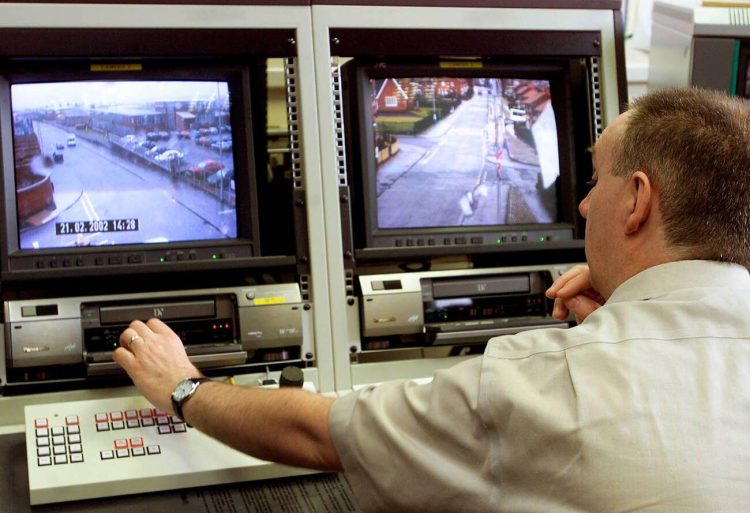Journalists and civil society organizations contend that police surveillance in Northern Ireland undermines public trust in law enforcement and threatens freedom of expression. Reports indicate that police used journalists’ phone numbers to identify internal information breaches, which has raised substantial concerns regarding press freedom and civil liberties.
Amnesty International and the Committee on the Administration of Justice (CAJ) have jointly written to the Northern Ireland Secretary, Hilary Benn, calling for a public inquiry into covert surveillance by MI5 and the creation of a clandestine commissioner for law enforcement in Northern Ireland.
Police Surveillance in Northern Ireland: Phone Number Checks
Police in Northern Ireland used journalists’ phone numbers to check for information leaks by officers or staff. An independent review found that it was not widespread or systemic surveillance. However, the PSNI had previously admitted to 10 attempts to use journalists’ communications data to try to identify their sources. On the other hand, the report identified 21 instances, all of which occurred before 2015, and all of which are unlawful. Moreover, they relate to eight journalists, including McCaffrey.
Chief Constable John Boutcher asked London barrister Angus McCullough to examine Police Service of Northern Ireland procedures. The time period studied was from 2011 to 2024, following a court action brought by two Belfast journalists. The action equated to the search warrants and other surveillance having been acquired illegally. McCullough ran a report that was more than 200 pages long. Then, he concluded there was no evidence of systemic or widespread use of covert measures by the PSNI against journalists, lawyers, or others of special status. However, the review raised significant concerns about the PSNI. PSNI conducted trawls of its own communications systems records in an untargeted wholesale attempt to identify unauthorized contact between PSNI personnel and journalists.
Hilary Benn: Called for Public Inquiry
The National Union of Journalists (NUJ), Amnesty International, and the Committee on the Administration of Justice (CAJ) have urged Hilary Benn to enforce strict compliance with surveillance legislation, initiate a public inquiry into covert practices, and support the creation of a law enforcement commissioner in Northern Ireland.
The demand for government action followed, in March 2024, when Chief Constable John Boutcher accepted the findings of a 200-page report into covert surveillance against journalists, lawyers, and others, prepared by Angus McCullough KC. The report was prompted by disclosures to the Investigatory Powers Tribunal concerning the illegal PSNI surveillance of NUJ members Barry McCaffrey and Trevor Birney in incidents that predated 2015. In the publication, McCullough emphasized how the arrests and surveillance harmed investigative journalism in Northern Ireland. McCaffrey and Birney had been investigating mass murder and allegations of state collusion during the period under review. Despite focusing on those years, the police arrested them and conducted covert surveillance, ultimately raising enduring concerns for the right to freedom of expression as fundamental to democracy.
Unions Call for Investigation into Police Surveillance
Further comprehensive investigations into police surveillance in Northern Ireland are necessary. National Union of Journalists (NUJ) assistant general secretary Séamus Dooley reiterated the union’s demand for an independent inquiry into police surveillance, distinct from the PSNI surveillance addressed in the McCullough Review.
In correspondence with Hilary Benn, Dooley endorsed the joint appeal by Amnesty International and the Committee on the Administration of Justice for the establishment of a Commission for Covert Law Enforcement in Northern Ireland. This proposal aligns with the longstanding, unimplemented recommendation of the Patten Commission. Dooley also criticized the Investigatory Powers Tribunal (IPT) process as secretive, costly, and complex, noting that these barriers have resulted in the denial of justice for many potential complainants.
Police Surveillance in Northern Ireland: Public Confidence in Police
In fact, the revelations at the Investigatory Powers Tribunal (IPT) gravely damaged the public confidence in policing in Northern Ireland. Police surveillance in Northern Ireland shredded public confidence. The IPT process is secretive in nature, but it lacks transparency. It is protracted and, as a consequence, highly costly to media organizations and journalists, especially freelance journalists and smaller, independent companies.
The financial implications of IPT hearings have served as a deterrent to some individuals who believe they have been subjected to unlawful surveillance. Those with potential IPT cases, based on unfair procedures and failure to adhere to due process, should not be denied access to justice based on cost. It’s now over to Hilary Benn, and it’s now over to the British government. Necessarily, they must use their powers to appoint an independent body to investigate the shadowy forces that are not dealt with through the terms of reference of this report.
Northern Ireland Secretary: Works for Public Confidence
Calls are increasing for Northern Ireland Secretary Hilary Benn to initiate a public inquiry in response to revelations of unlawful police surveillance of journalists and lawyers, as documented in a report examining police use of covert powers against eight journalists.
McCaffrey asserted that only a public inquiry can restore confidence in policing following years of damaging police surveillance. He emphasized that the actions of the Police Service of Northern Ireland (PSNI) have directly eroded public trust, and that responsibility now lies with Hilary Benn to act. According to McCaffrey, public confidence can only be regained through accountability and transparency.





























